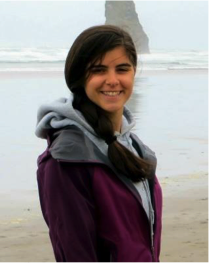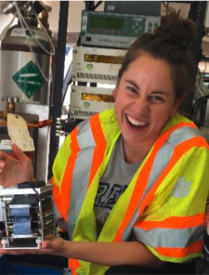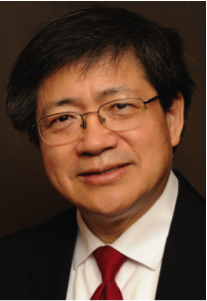The California Local Section Woman Chemists Committee had extended an invitation to the Permian Basin Section members to attend their 2021 talks. The September 18, 2021, presentation “Air Pollution in High Definition: Building Low-Cost Sensor Networks & Community Partnerships” was the third one this year. During the time allotted preceding the talk, attendees had an opportunity to participate in two breakout sessions for chatting/networking. The talk concluded with a robust Q&A with the speaker. All talks were via Zoom.

Dr. Alexis Shusterman
Dr. Shusterman completed her PhD in atmospheric chemistry at the University of California, Berkeley while working with Prof. Ronald Cohen. Her graduate work centered around the construction of BEACO2N, a high-density network of more than three dozen low-cost sensors capable of providing community-level air quality reports throughout the San Francisco Bay Area. During graduate school, Alexis worked with science communication and outreach organizations nationwide to spread climate change and environmental justice awareness, winning recognition in the University of California, Berkeley (UC Berkeley) Grad Slam, the University of California Carbon Slam, and the American Chemical Society Chemistry Champions competitions. Now a lecturer in the UC Berkeley College of Chemistry, Alexis dedicates herself to delivering high quality chemical education full time.

Dr. Chelsea Preble
Dr. Preble earned her PhD in Environmental Engineering from UC Berkeley in 2017, and is now an Assistant Research Engineer in the Department of Civil and Environmental Engineering at UC Berkeley and affiliate of the Energy Technologies Area at Berkeley Lab. In her work, she seeks to better understand air pollution trends, sources, and controls in impacted communities and to evaluate the real-world emissions impacts of new regulations and alternative energy technologies. Her research includes characterizing in-use emissions from heavy-duty diesel trucks and commercial harbor craft, developing community-based air quality sensor networks, and quantifying emissions from organic waste diversion systems.
The presenters noted several observations: (1) Measuring atmospheric pollutants has the potential to help identify the sources as well as the communities facing disproportionate risks, and (2) due to the significant upfront and operational costs of high-precision and high-accuracy instrumentation, most traditional air quality monitoring campaigns in these communities have been scarce. To address these challenges, the two researchers provided evidence for the benefits of tracking air pollution at the neighborhood scale using low-cost monitoring techniques. They used custom-built, low-cost black carbon (BC)—or soot—sensors outside of community members’ homes and businesses. They were “able to capture seasonal trends in ambient BC on a block-by-block basis and found that the patterns in BC concentrations were driven by truck activity”. They also present initial results from community air quality studies in two San Francisco Bay Area communities that are “burdened by diesel particulate matter pollution. Through meaningful partnerships between researchers and key community stakeholders, these collaborations created actionable datasets that advance both science and advocacy goals as part of broader Community Air Protection Program monitoring efforts.”



